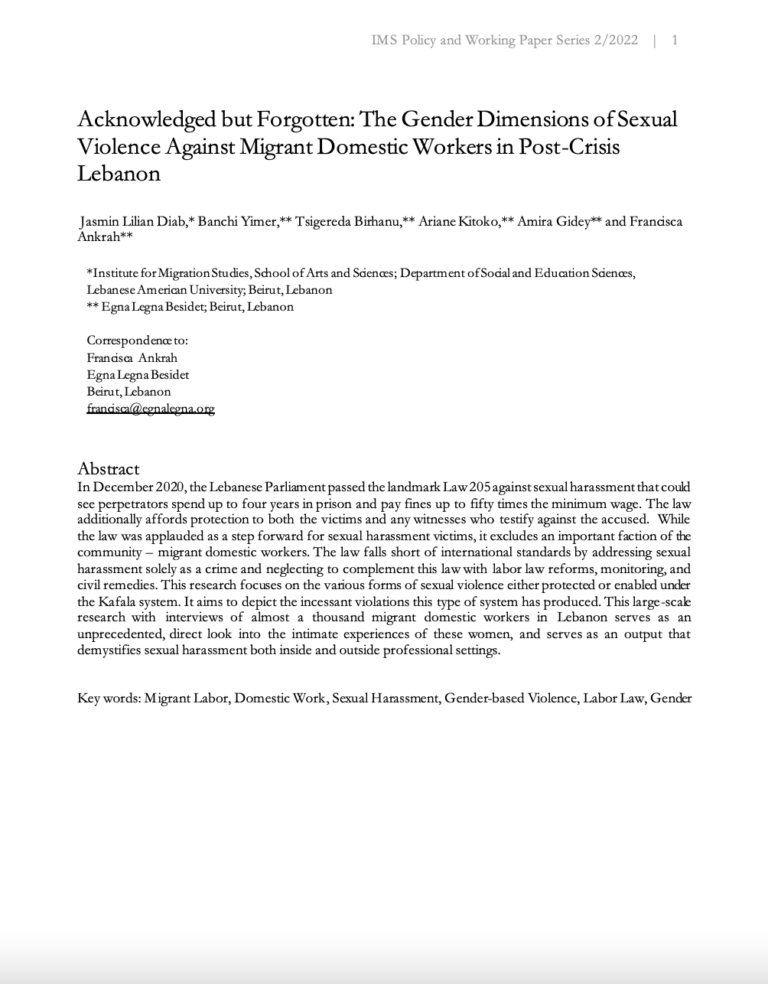In December 2020, the Lebanese Parliament passed the landmark Law 205 against sexual harassment that could
see perpetrators spend up to four years in prison and pay fines up to fifty times the minimum wage. The law
additionally affords protection to both the victims and any witnesses who testify against the accused. While
the law was applauded as a step forward for sexual harassment victims, it excludes an important faction of the
community – migrant domestic workers. The law falls short of international standards by addressing sexual
harassment solely as a crime and neglecting to complement this law with labor law reforms, monitoring, and
civil remedies. This research focuses on the various forms of sexual violence either protected or enabled under
the Kafala system. It aims to depict the incessant violations this type of system has produced. This large-scale
research with interviews of almost a thousand migrant domestic workers in Lebanon serves as an
unprecedented, direct look into the intimate experiences of these women, and serves as an output that
demystifies sexual harassment both inside and outside professional settings.

